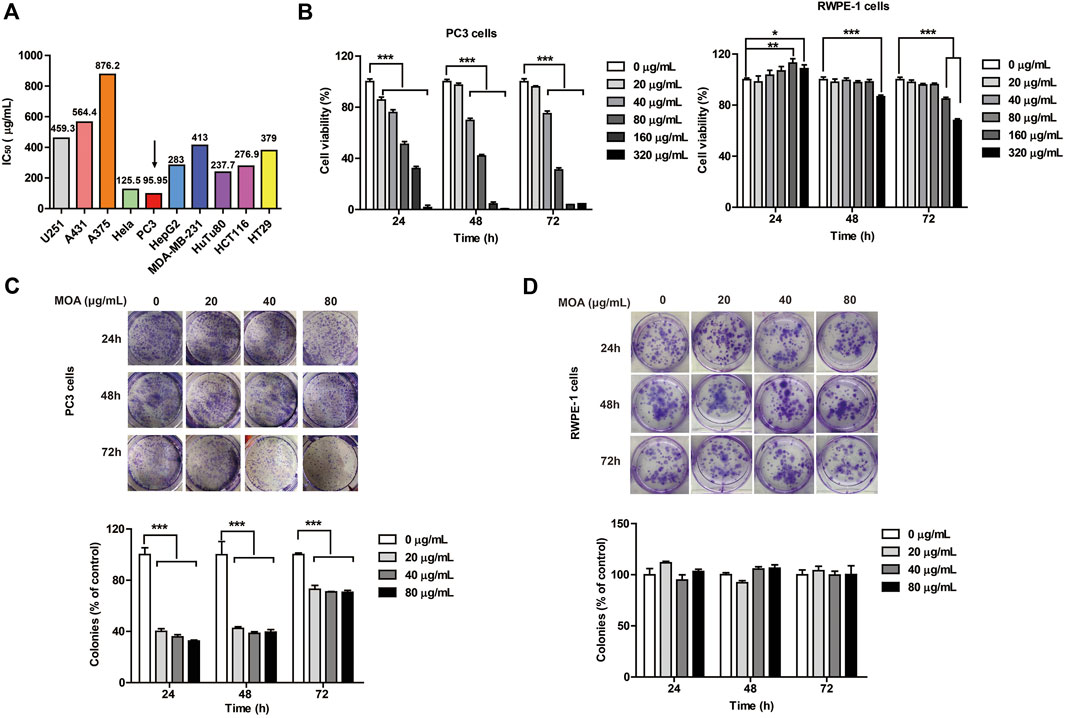- 1College of Food Science and Technology, Yunnan Agricultural University, Kunming, China
- 2Engineering Research Center of Development and Utilization of Food and Drug Homologous Resources, Ministry of Education, Yunnan Agricultural University, Kunming, China
- 3National Research and Development Professional Center for Moringa Processing Technology, Yunnan Agricultural University, Kunming, China
- 4College of Science, Yunnan Agricultural University, Kunming, China
- 5Yunnan Province Engineering Research Center of Functional Food of Homologous of Drug and Food, Yunnan Agricultural University, Kunming, China
- 6Key Laboratory of Pu-er Tea Science, Ministry of Education, Yunnan Agricultural University, Kunming, China
A Corrigendum on
Moringa oleifera Alkaloids Inhibited PC3 Cells Growth and Migration Through the COX-2 Mediated Wnt/β-Catenin Signaling Pathway
by Xie, J., Luo, F-x., Shi, C-y., Jiang, W-w., Qian, Y-y., Yang, M-r., Song, S., Dai, T-y., Peng, L., Gao, X-y., Tao, L., Tian, Y., and Sheng, J. (2020). Front. Pharmacol. 11:523962. doi: 10.3389/fphar.2020.523962
In the original article, there was a mistake in Figure 1C as published. Some images in Figure 1C were mistakenly duplicated. The corrected Figure 1 appears below.

FIGURE 1. The effect of MOA on the proliferation of PC3 and RWPE-1 cells. (A) The half maximal inhibitory concentration (IC50) of ten tumor cell lines following treatment with MOA (0–320 μg/ml) for 48 h. (B) Cell viability of PC3 and RWPE-1 cells following MOA (0–320 μg/ml) treatment for 24, 48, and 72 h. (C,D) Analysis of the colony formation ability of PC3 cells following treatment with MOA (0, 20, 40, and 80 μg/ml) for 24, 48, and 72 h. The cellular colony formation rates are expressed as fold changes. Results are expressed as the mean ± SEM of three independent experiments. ***p < 0.001 vs. 0 μg/ml.
The authors apologize for this error and state that this does not change the scientific conclusions of the article in any way. The original article has been updated.
Publisher’s Note
All claims expressed in this article are solely those of the authors and do not necessarily represent those of their affiliated organizations, or those of the publisher, the editors and the reviewers. Any product that may be evaluated in this article, or claim that may be made by its manufacturer, is not guaranteed or endorsed by the publisher.
Keywords: Moringa oleifera alkaloids, prostate cancer, PC3 cells, cell growth and migration, COX-2-wnt/β-catenin signaling pathway
Citation: Xie J, Luo F-x, Shi C-y, Jiang W-w, Qian Y-y, Yang M-r, Song S, Dai T-y, Peng L, Gao X-y, Tao L, Tian Y and Sheng J (2021) Corrigendum: Moringa oleifera Alkaloids Inhibited PC3 Cells Growth and Migration Through the COX-2 Mediated Wnt/β-Catenin Signaling Pathway. Front. Pharmacol. 12:760933. doi: 10.3389/fphar.2021.760933
Received: 19 August 2021; Accepted: 03 September 2021;
Published: 16 September 2021.
Edited and reviewed by:
Rajasekaran Subbiah, ICMR-National Institute for Research in Environmental Health, IndiaCopyright © 2021 Xie, Luo, Shi, Jiang, Qian, Yang, Song, Dai, Peng, Gao, Tao, Tian and Sheng. This is an open-access article distributed under the terms of the Creative Commons Attribution License (CC BY). The use, distribution or reproduction in other forums is permitted, provided the original author(s) and the copyright owner(s) are credited and that the original publication in this journal is cited, in accordance with accepted academic practice. No use, distribution or reproduction is permitted which does not comply with these terms.
*Correspondence: Jun Sheng, c2hlbmdqdW5feW5hdUAxNjMuY29t; Yang Tian, dGlhbnlhbmcxMjA4QDE2My5jb20=
†These authors have contributed equally to this work
 Jing Xie
Jing Xie Feng-xian Luo1,3†
Feng-xian Luo1,3† Xiao-yu Gao
Xiao-yu Gao Jun Sheng
Jun Sheng